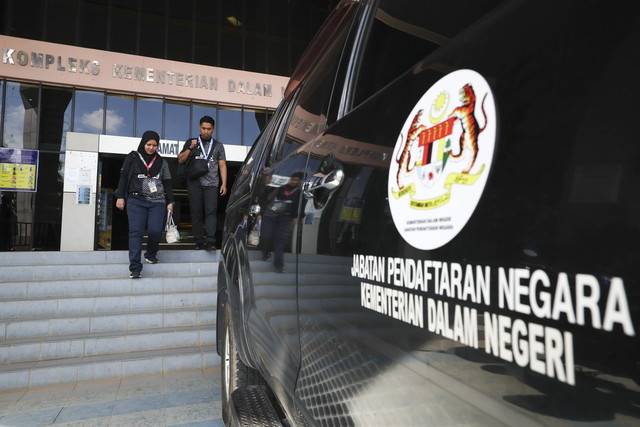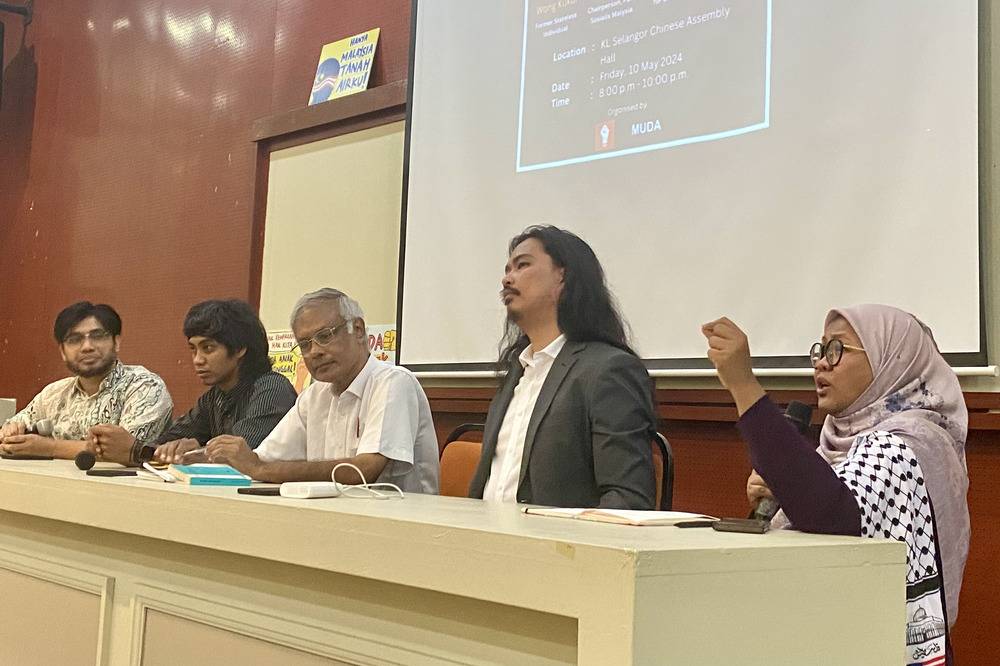Develop transparent, comprehensive SOPs to address statelessness - Former stateless man

SHAH ALAM - The government should abandon the regressive amendments to the citizenship law and instead develop a transparent and comprehensive standard operating procedure (SOP) to address the issue of statelessness in the country.
Former stateless man and Malaysian United Democratic Alliance (Muda) member Wong Kueng Hui said it was crucial to involve all relevant stakeholders in the decision-making process by including non-governmental organisations (NGOs), activists, academics as well as lawyers.
"Decisions should not be solely dictated by the government's preferences, but should reflect the input and expertise of diverse voices within the society," he said.
He said this during the "No One is Illegal" event which was held by Muda and the Socialist Party of Malaysia (PSM).
Previously, it was reported that the Cabinet has decided to stop two of eight constitutional amendments on Malaysian citizenship law that would have affected foundlings in the country.
Home Minister Datuk Seri Saifuddin Nasution Ismail said the two provisions were Section 19B of Part III of the Second Schedule and Section 1(e) of Part II of the Second Schedule of the Federal Constitution.
He said this was based on feedback from federal lawmakers, among others.
Saifuddin said the ministry initially intended to amend the two areas so that citizenship applications of foundlings would be by registration rather than by operation of law.
Commenting further, Wong said the citizenship law stipulated in the Federal Constitution arose from the Malaysia Agreement 1963 (MA63).
Therefore, he said if the government proceeded with these regressive amendments without the consent of the people of Sabah, it would violate their rights.
Concurring with Wong’s views, Lawyers for Liberty director Zaid Malek stressed that the issue of statelessness in Malaysia was a failure of the administration.
"Moving forward, let us not view statelessness as a problem, but as a means to assist Malaysians who have been sidelined, who have fallen through the cracks and are deprived of the rights that all Malaysians deserve.
"By adhering to the existing law, we only need to make certain adjustments to our citizenship law to substantially improve the situation," he said.
Zaid also highlighted that it was illogical and administratively unsound to determine whether a child or individual was a security threat based solely on documentation.

He said stateless people existed in Malaysia and they also have the right to find love, have a family and contribute to society.
Each stateless family, he said created a network of individuals who did not have citizenship.
"How many settlements are there in Sabah where they live in the jungle and establish communities? This situation is unsustainable.
"Ignoring them does not make sense because they are rightfully Malaysians and every day they remain stateless is a denial of their rights for which the government is responsible for," he added.
Zaid said the first step should be to draft amendments that focused on the administration of the law.
He said the National Registration Department (NRD) must be held accountable.
"How can NRD have an extended operating procedure that legally frustrates individuals from initiating the process?
"It is unacceptable that no one has been held accountable for this.
"Those in NRD are civil servants who follow whose instructions? The government. Priority should be given to improving the administration of the law," he said.
Meanwhile, Muda member Siti Rahayu Baharin or better known as Cikgu Ayu said political parties in Sabah that address the issue of undocumented immigrants and statelessness were unlikely to succeed in elections.
She said most politicians prioritise winning elections over tackling long-standing issues of statelessness.
"For instance, the proposed amendment to the country's citizenship law targets foreign women married to Malaysian men, supposedly to prevent marriages of convenience.
"This narrative implies that these women only marry Malaysian men for citizenship and then leave the country, suggesting that Malaysian citizenship is highly coveted," she said.
However, she claimed that when they requested for data from the government on these "marriages of convenience", no data was provided.
"How can policymakers discuss unclear issues based solely on assumptions?," she said.
Ayu shared a story about an academic approached by the Home Ministry to research these proposed amendments.
The academic insisted on having data before proceeding, emphasising that academic research required factual evidence.
"Where is the data to support claims that stateless individuals pose security threats? Without concrete data, policymaking becomes speculative and ineffective.
"Every year, we import a large number of foreign workers to meet labour demands in our country. Why not address the issue of statelessness and allow these individuals to work legally with proper documentation?," she added.
She stressed that ignoring this issue would not bring any benefits.
"Where can these stateless people go? They are here in Malaysia. They are not here to infringe upon the rights of Malaysian citizens; some were born here and have Malaysian blood and heritage.
"They are not like certain foreign athletes who gain citizenship through naturalisation, only to leave Malaysia once their careers are over, never to return.
"These stateless individuals are loyal to the country," she added.
PSM chairman Dr Michael Jeyakumar Devaraj suggested that the government address the plight of stateless individuals by providing them with official documentation that allowed them to work legally.
He said this initial step, while not granting citizenship outright, would allow them to contribute legally to society.
"By obtaining this documentation, they could access healthcare and education for their children, contributing to these services through a levy associated with their employment.
"This approach could alleviate many of their hardships, including the fear of exploitation and exclusion from essential services," he added.











